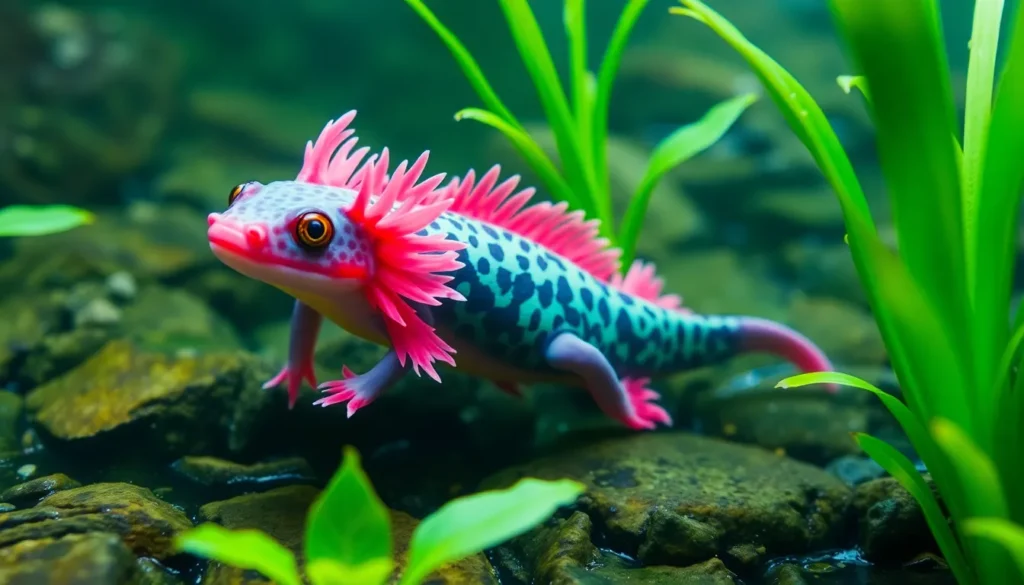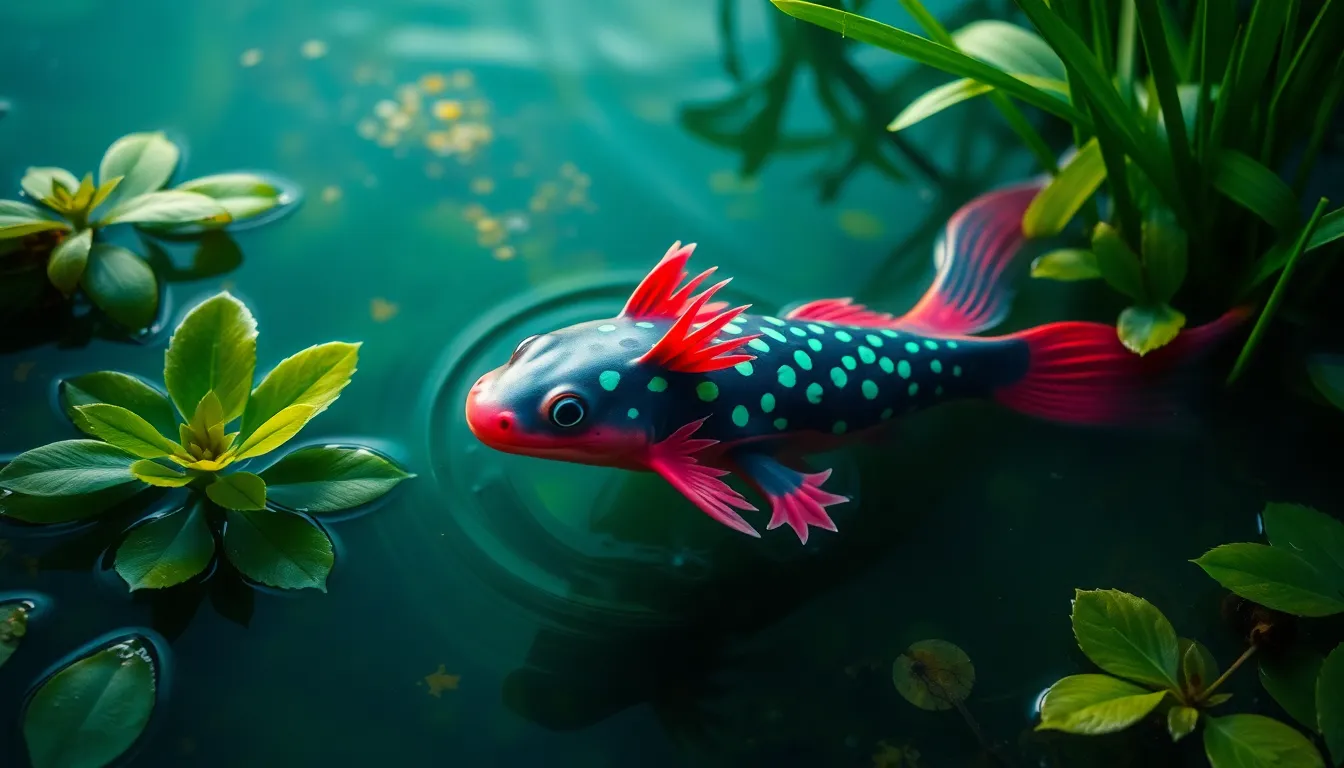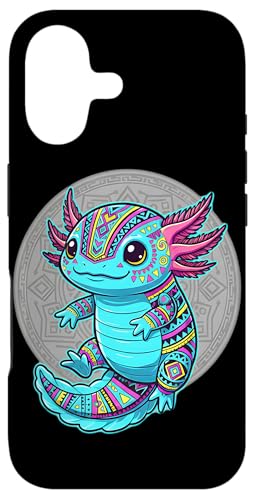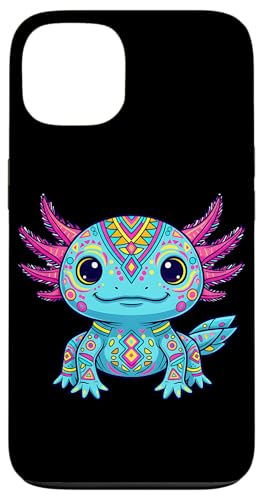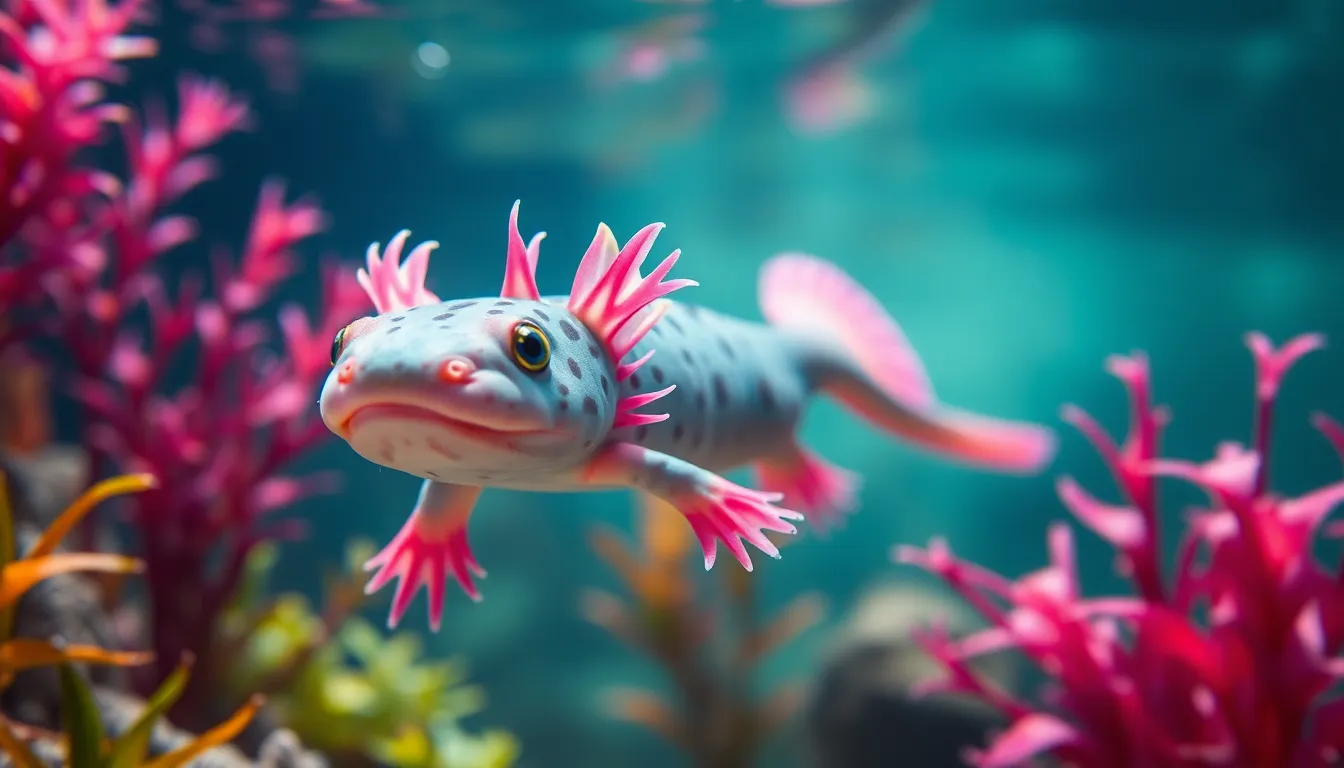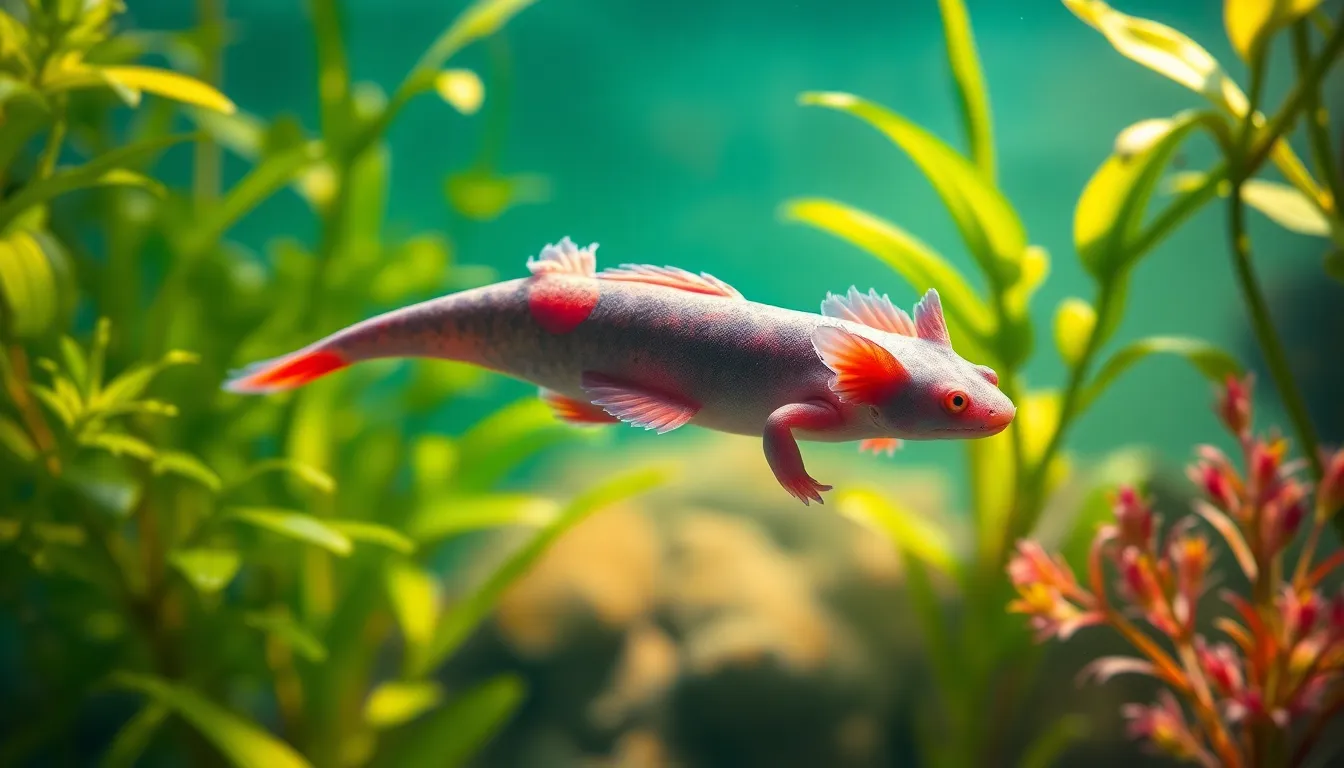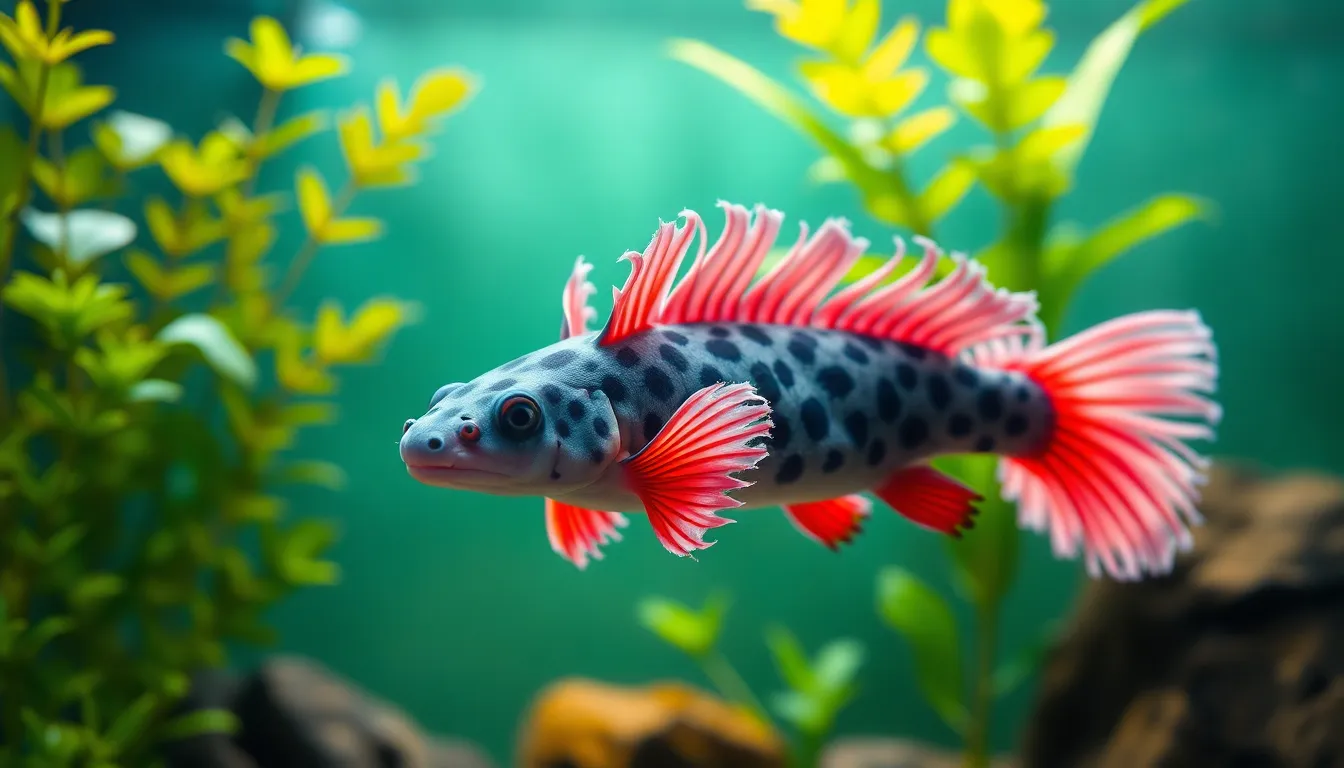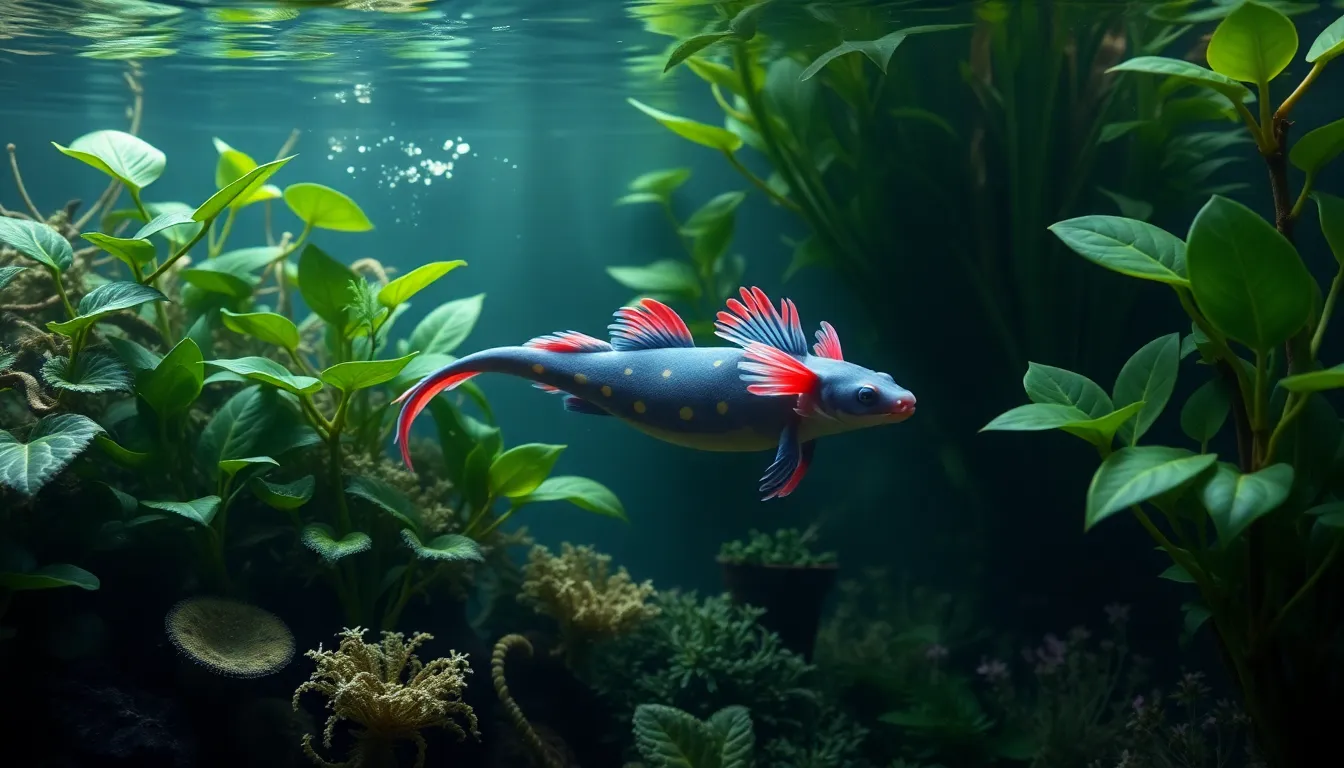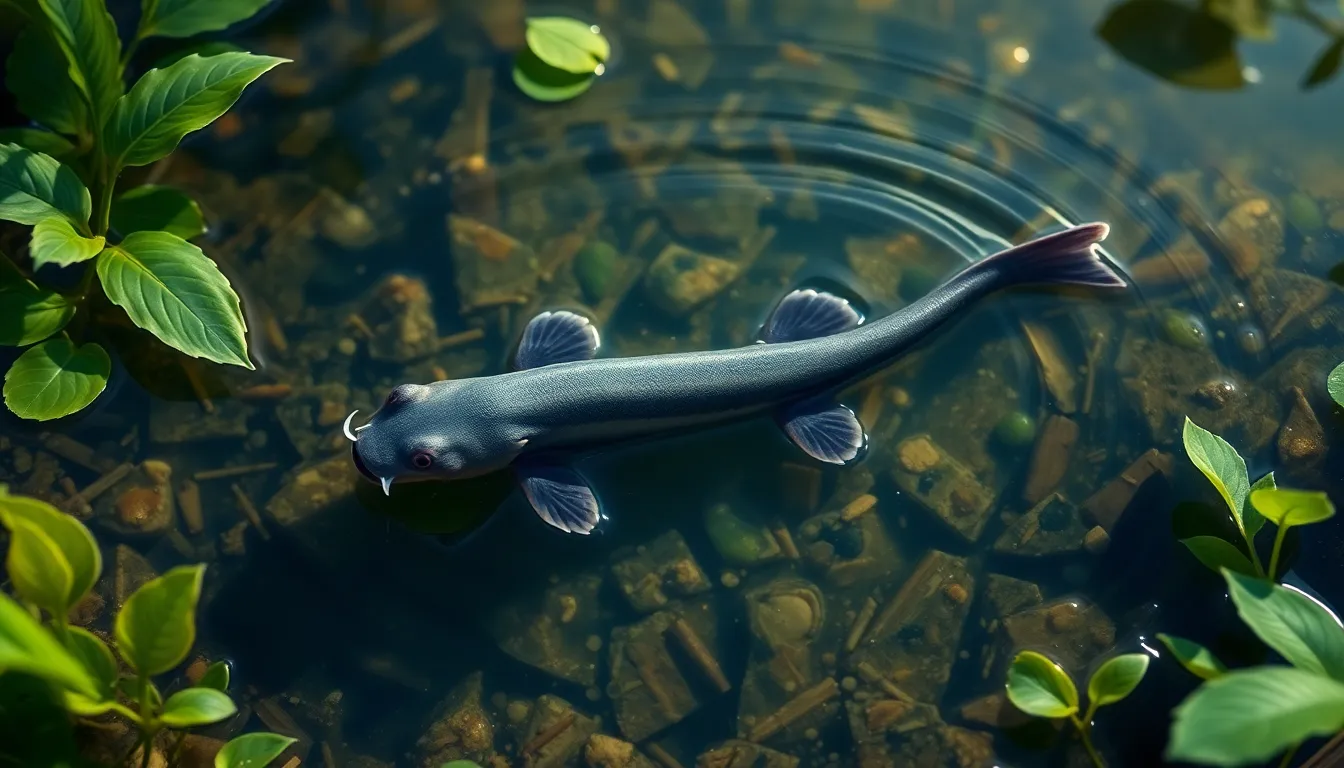We’ve all encountered creatures that seem almost magical in their uniqueness, but few captivate us quite like the axolotl. This extraordinary salamander has fascinated cultures for centuries with its otherworldly appearance and remarkable abilities. From ancient Aztec mythology to modern spiritual practices, the axolotl carries profound symbolic meaning that resonates deeply with those seeking transformation and healing.
What makes axolotl symbolism so compelling? These “water monsters” – as their Nahuatl name suggests – represent regeneration, adaptability, and the power to overcome seemingly impossible challenges. Their ability to regrow lost limbs mirrors our own capacity for renewal and rebirth.
Whether you’re drawn to their ancient mythological significance or curious about their role in contemporary spiritual symbolism, understanding axolotl meaning can offer powerful insights into your own journey of growth and transformation. Let’s explore the rich tapestry of symbolism surrounding these remarkable creatures.
What Is an Axolotl and Why Is It Significant
Axolotls are aquatic salamanders native to the lake systems of Mexico City, particularly Lake Xochimilco. These remarkable amphibians remain in their larval stage throughout their entire lives, retaining their external gills and aquatic lifestyle unlike other salamanders that undergo metamorphosis.
Physical characteristics make axolotls instantly recognizable:
- Feathery external gills extending from their heads
- Lidless eyes that give them a perpetual wide-eyed expression
- Four limbs with delicate fingers and toes
- Long tail used for swimming
- Colors ranging from leucistic (white with pink gills) to wild-type brown and melanistic black
Regenerative abilities set axolotls apart from virtually all other vertebrates. Scientists have documented their capacity to regrow entire limbs, portions of their heart, brain tissue, and spinal cord within months. Research published in the journal Nature shows axolotls can regenerate the same limb over 100 times without scarring or loss of function.
Cultural significance spans over 1,000 years of human history. Ancient Aztecs revered axolotls as manifestations of Xolotl, the dog-headed god of lightning and death who guided souls through the underworld. The name “axolotl” derives from the Nahuatl words “atl” (water) and “xolotl” (dog), literally meaning “water dog.”
Conservation status places axolotls among the industry’s most endangered species. The International Union for Conservation of Nature lists them as critically endangered, with fewer than 1,000 individuals remaining in their natural habitat. Urban development, pollution, and invasive species have reduced their wild population by over 99% since the 1970s.
Scientific importance extends beyond their regenerative powers. Researchers use axolotls as model organisms to study tissue regeneration, cancer resistance, and developmental biology. Their unique genetic makeup contains 32 billion base pairs, making their genome 10 times larger than the human genome.
Ancient Aztec Symbolism and Mythology
The axolotl’s symbolic significance traces back over 1,000 years to ancient Aztec civilization, where these aquatic creatures held profound spiritual meaning. Aztec mythology intertwined the axolotl with themes of divine transformation, sacrifice, and the eternal cycle between life and death.
The God Xolotl and Divine Connections
Xolotl served as the divine counterpart to these remarkable creatures, functioning as the twin brother of the feathered serpent god Quetzalcoatl. Fire and lightning fell under Xolotl’s domain, establishing him as a powerful deity within the Aztec pantheon. The god’s legendary story unfolds with his desperate flight from other deities who demanded his sacrifice for creating the Fifth Sun.
Multiple transformations marked Xolotl’s escape attempts as he shifted between various forms to evade capture. His final metamorphosis occurred when he became an axolotl and sought refuge in the waters of Xochimilco. This mythological transformation cemented the connection between the divine and these aquatic salamanders.
Resistance to fate became the central theme of Xolotl’s story, with the axolotl symbolizing the delicate balance between existence and mortality. The Nahuatl term “xolotl” translates to “unusual,” “deformed,” or “abnormal,” reflecting the creature’s distinctive appearance rather than carrying negative connotations found in Western interpretations.
Transformation and Regeneration in Aztec Culture
Fertility and transformation represented core symbolic meanings that Aztecs attributed to axolotls throughout their civilization. The creatures’ extraordinary ability to regenerate lost body parts captivated ancient observers and inspired deep spiritual reverence. Complete limbs, portions of hearts, and even brain tissue could regrow in these salamanders, demonstrating powers that seemed supernatural to ancient peoples.
Regenerative abilities linked axolotls to concepts of eternal youth and renewal within Aztec belief systems. Consuming axolotl flesh was believed to transfer these regenerative properties to humans, reflecting the civilization’s profound connection with natural forces. Survival and renewal themes permeated Aztec culture through axolotl symbolism, representing hope for overcoming death and achieving rebirth.
Sacred waters of Xochimilco became synonymous with transformation due to their axolotl populations, reinforcing the creatures’ role as symbols of life’s cyclical nature. The amphibians embodied the Aztec understanding that death and rebirth formed inseparable aspects of existence, making them powerful totems for those seeking spiritual transformation.
Modern Spiritual Meanings of the Axolotl
We encounter profound spiritual symbolism when exploring the axolotl’s contemporary significance. Modern practitioners and spiritual seekers recognize these remarkable creatures as powerful symbols of transformation and renewal.
Healing and Self-Renewal
Healing emerges as the axolotl’s primary spiritual association due to its extraordinary regenerative abilities. These creatures can regrow lost limbs and portions of their brain, making them potent symbols for emotional and physical healing in spiritual practices. We observe practitioners using axolotl imagery in meditation sessions focused on recovery and restoration.
Self-renewal represents another core spiritual meaning derived from the axolotl’s regenerative powers. Modern spirituality embraces the axolotl as a guide for personal transformation, encouraging individuals to release outdated patterns and embrace change. Spiritual communities often reference the axolotl when discussing cycles of personal growth and rebirth.
Adaptability and Resilience
Adaptability defines the axolotl’s spiritual significance in handling life’s challenges. These creatures thrive in diverse environments, from clear mountain streams to murky urban lakes, symbolizing our capacity to flourish even though changing circumstances. We find spiritual teachers incorporating axolotl symbolism when guiding students through periods of uncertainty.
Resilience manifests through the axolotl’s survival abilities across varied conditions. Modern spiritual practices draw upon this resilience as inspiration for facing obstacles with determination and grace. Meditation practitioners often visualize the axolotl’s adaptive nature when seeking strength during difficult transitions.
Inner Child and Playfulness
Inner child connections emerge through the axolotl’s perpetual larval state and curious nature. These creatures maintain their youthful characteristics throughout their lives, encouraging spiritual seekers to preserve their sense of wonder and innocence. We observe spiritual counselors using axolotl symbolism to help clients reconnect with their authentic selves.
Playfulness radiates from the axolotl’s unique appearance and behaviors, inviting individuals to embrace joy and simplicity in their spiritual journeys. Contemporary spiritual movements incorporate the axolotl’s lighthearted energy as a reminder to balance serious spiritual work with moments of pure delight and curiosity.
Axolotl as a Spirit Animal and Totem
The axolotl emerges as a gentle guide in spiritual practices, offering profound wisdom through its remarkable regenerative abilities. Spirit animals embody the axolotl’s groundbreaking power while totem animals serve as guardians of healing and renewal.
Characteristics of Axolotl Spirit Animals
Empathy defines those connected to axolotl spirit animals, creating deep emotional bonds with others seeking healing. Nurturing qualities flow naturally from these individuals, who often find themselves drawn to caregiving roles and supportive relationships. Intuitive awareness guides their decision-making process, allowing them to sense underlying truths that others might miss.
Adaptability becomes a cornerstone trait, reflecting the axolotl’s ability to thrive in challenging environments while maintaining its unique characteristics. Resilience emerges through life’s difficulties, mirroring the creature’s capacity to regenerate lost parts and emerge stronger. Patient understanding develops over time, teaching us that healing occurs gradually rather than instantly.
Self-reflection practices come naturally to axolotl spirit animal connections, encouraging regular introspection and personal growth. Emotional intelligence strengthens through these spiritual connections, helping individuals navigate complex feelings and relationships with greater wisdom.
Messages and Guidance from Axolotl Totems
Transformation opportunities present themselves when axolotl totems appear in our spiritual journey, signaling readiness for important personal change. Trust develops in our inherent healing abilities, reminding us that recovery exists within our natural capacity for renewal. Past experiences release their hold when we embrace the axolotl’s message of letting go and moving forward.
Hope manifests through challenging periods, symbolizing the positive outcomes that emerge from patient persistence and inner work. Personal growth accelerates when we accept the totem’s guidance toward embracing change rather than resisting life’s natural cycles. Renewal energy flows through spiritual practices, encouraging us to shed outdated beliefs and patterns that no longer serve our highest good.
Healing processes begin at the cellular level, reflecting the axolotl’s remarkable ability to regenerate tissue and restore function. Wholeness returns through dedicated spiritual practice, teaching us that complete recovery encompasses both physical and emotional dimensions of our being.
Cultural Interpretations Across Different Societies
Axolotls carry profound symbolic meaning across diverse cultures, with interpretations shaped by their unique biological characteristics and mythological associations. These remarkable creatures transcend simple animal symbolism to embody complex spiritual and cultural concepts that vary significantly between societies.
Mexican Cultural Significance
Mexican culture holds axolotls in exceptional reverence, viewing them as mystical beings that embody transformation and protection. The connection to Xolotl, the Aztec god who transformed into an axolotl to escape death, remains deeply embedded in contemporary Mexican symbolism. This transformation myth establishes axolotls as guardians of the underworld and spiritual guides for souls handling between worlds.
The name “Axolotl” translates to “Water Servant” or “Water Sprite,” reflecting the positive connotations these creatures maintain in Mexican society. Their ability to remain in juvenile form throughout their lives symbolizes staying true to oneself and retaining childlike wonder, qualities highly valued in Mexican cultural philosophy. Literary traditions incorporate axolotl imagery to represent critical thought and environmental consciousness, demonstrating their continued relevance in modern Mexican culture.
Mexican communities celebrate axolotls as symbols of resilience and adaptation, drawing parallels between the creature’s survival strategies and human perseverance. Their regenerative abilities represent renewal and hope, particularly important given their critically endangered status in their native habitat of Xochimilco.
Contemporary Spiritual Communities
Modern spiritual practitioners embrace axolotls as powerful symbols of peace and emotional healing. These communities recognize axolotls as carriers of calm energy frequencies, making them popular choices for emotional support and meditation practices. Their gentle nature and regenerative abilities align with spiritual beliefs about personal transformation and inner healing.
Contemporary spiritual interpretations focus on the axolotl’s perpetual larval state as a metaphor for maintaining innocence and openness to growth. Spiritual communities use axolotl symbolism to encourage practitioners to embrace change while staying connected to their authentic selves. The creature’s remarkable healing abilities inspire meditation practices centered on physical and emotional renewal.
New Age spiritual movements particularly value axolotls for their association with water elements and emotional cleansing. Their unique appearance and behaviors represent the acceptance of one’s authentic self, encouraging practitioners to embrace their distinctive qualities without conforming to external expectations.
Axolotl Symbolism in Dreams and Meditation
Axolotls appearing in our dreams carry profound symbolic meaning that connects to transformation and emotional healing. These mystical creatures emerge in our subconscious minds when we’re ready to embrace vulnerability and tap into our innate resilience. Dream scenarios featuring axolotls often signal periods of personal growth and renewal.
Regeneration Dreams and Personal Healing
Witnessing an axolotl regenerating a limb in our dreams suggests we possess powerful healing abilities within ourselves. This dream imagery directly correlates to our capacity for emotional and physical recovery from past wounds. The regenerative process we observe represents our own potential for transformation and renewal.
Relationship Symbolism in Dreams
Encountering an axolotl alongside another being in our dreams creates positive omens for relationships and partnerships. This dream combination often indicates new connections forming in our lives or existing relationships undergoing positive transformation. The axolotl’s presence brings healing energy to interpersonal dynamics.
Meditation Practices with Axolotl Energy
Incorporating axolotl symbolism into meditation sessions enhances our connection to healing and regenerative powers. We can visualize the axolotl’s gentle movements through water to promote emotional cleansing and stress release. This meditative practice helps us access the creature’s calming energy and groundbreaking qualities.
Water Element Meditation
Focusing on the axolotl’s aquatic nature during meditation connects us to the water element’s cleansing properties. The creature’s graceful swimming motions guide us through emotional blockages and promote inner peace. These visualization techniques support our journey toward emotional balance and spiritual renewal.
Embracing Vulnerability Through Dream Work
Axolotl dreams encourage us to embrace our vulnerable aspects while maintaining strength and resilience. The creature’s soft appearance combined with its remarkable survival abilities teaches us that gentleness and power can coexist. Dream interpretation reveals our readiness to heal and transform challenging life circumstances.
How to Connect With Axolotl Energy in Daily Life
Connecting with axolotl energy transforms our daily experiences through intentional practices that mirror their remarkable regenerative abilities. We can begin each morning by embracing the axolotl’s permanent smile, cultivating a positive outlook that welcomes both challenges and opportunities for growth.
Mindfulness and Self-Healing Practices
Meditation techniques centered on regeneration help us tap into the axolotl’s healing symbolism. We visualize our bodies and minds renewing themselves, much like how axolotls regenerate limbs, spinal cords, and brain tissue. This practice strengthens our connection to natural healing processes and builds resilience against emotional wounds.
Breathwork exercises mirror the axolotl’s unique respiratory system, encouraging us to breathe deeply and release stagnant energy. We focus on drawing in fresh perspectives while exhaling limiting beliefs, creating space for personal transformation.
Self-care rituals become more meaningful when we incorporate water elements, honoring the axolotl’s aquatic nature. Taking mindful baths, drinking water with intention, or simply sitting near natural water sources connects us to the sacred waters of Xochimilco where axolotls originated.
Embracing Transformation and Change
Adaptability exercises help us embody the axolotl’s resilience in challenging environments. We practice flexibility by changing our routines, trying new approaches to problems, or stepping outside our comfort zones. These actions mirror how axolotls thrive even though their critically endangered status, with fewer than 1,000 individuals remaining in the wild.
Growth mindset practices align with the axolotl’s ability to remain in its larval state while continuing to evolve. We maintain curiosity and openness to learning, refusing to become rigid in our thinking patterns. This approach honors the axolotl’s connection to eternal youth and renewal.
Release ceremonies acknowledge the axolotl’s association with the Aztec god Xolotl and the underworld. We let go of what no longer serves us, creating space for new growth and possibilities.
Cultivating Joy and Positivity
Playfulness rituals connect us to the axolotl’s perpetual smile and childlike wonder. We engage in activities that spark joy without purpose beyond enjoyment, reflecting the axolotl’s embodiment of simplicity and innocence.
Gratitude practices focus on our ability to heal and regenerate, both physically and emotionally. We acknowledge our resilience and capacity for renewal, drawing inspiration from the axolotl’s supernatural regenerative abilities.
Community connections honor the axolotl’s role as a guide for souls in Aztec mythology. We nurture relationships that support our growth and transformation, creating networks of mutual healing and protection.
Conclusion
The axolotl’s enduring symbolism transcends cultural boundaries and speaks to our universal need for renewal and transformation. As we’ve explored these remarkable creatures represent far more than their biological uniqueness—they’re powerful spiritual guides offering wisdom about resilience and regeneration.
Whether we encounter axolotls through dreams meditation or daily spiritual practice their message remains consistent: embrace change while honoring our authentic selves. Their ability to remain childlike yet adaptive provides a blueprint for handling life’s challenges with grace and optimism.
By connecting with axolotl energy we open ourselves to profound healing and personal growth. These extraordinary beings remind us that transformation doesn’t require abandoning who we are—it means becoming more fully ourselves.
Frequently Asked Questions
What is an axolotl and what makes it unique?
An axolotl is a type of salamander native to Mexico’s lake systems that remains in its larval stage throughout its life. What makes it truly unique is its extraordinary ability to regenerate lost limbs, heart portions, and even brain tissue. Unlike other salamanders, axolotls retain their feathery external gills and never undergo metamorphosis to become land-dwelling adults.
What did axolotls symbolize in ancient Aztec culture?
In Aztec culture, axolotls were considered sacred manifestations of the god Xolotl, twin brother of Quetzalcoatl. They symbolized divine transformation, the cycle of life and death, and eternal youth. The Aztecs believed axolotls possessed supernatural regenerative powers and that consuming them could confer renewal and healing properties to humans.
How do axolotls serve as spirit animals in modern spirituality?
As spirit animals, axolotls represent transformation, healing, and emotional renewal. They guide individuals through personal growth and encourage embracing change while maintaining inner childlike wonder. People connected to axolotl spirit animals often exhibit empathy, nurturing qualities, and resilience, finding themselves naturally drawn to caregiving roles and healing practices.
What does it mean when you dream about axolotls?
Dreaming about axolotls typically signifies readiness for personal transformation and emotional healing. These dreams often reflect your own regenerative abilities and potential for renewal. If you dream of axolotls regenerating limbs, it may indicate your capacity to heal from past wounds and emerge stronger from challenging situations.
Are axolotls endangered in the wild?
Yes, axolotls are critically endangered with fewer than 1,000 individuals remaining in their natural habitat. Urban development, pollution, and habitat destruction in Mexico City’s lake systems have dramatically reduced their population. Despite being popular in captivity for research and pets, wild axolotls face extinction without conservation efforts.
How can I connect with axolotl energy in daily life?
You can connect with axolotl energy by practicing mindfulness, engaging in water-based self-care rituals, and cultivating adaptability in challenging situations. Embrace playfulness and maintain curiosity like the axolotl’s perpetual larval state. Focus on healing practices, practice gratitude, and approach life changes with the same resilience that axolotls demonstrate in their environment.
What role do axolotls play in scientific research?
Scientists study axolotls extensively for their remarkable regenerative abilities, hoping to unlock secrets of tissue regeneration and developmental biology. Their unique genetic makeup provides insights into healing processes that could potentially benefit human medicine. Research focuses on understanding how they regrow complex structures like limbs and organs with perfect functionality.
How do different cultures interpret axolotl symbolism?
Mexican culture reveres axolotls as mystical beings representing transformation and protection, deeply connected to ancient Aztec beliefs. Contemporary spiritual communities embrace them as symbols of peace, emotional healing, and maintaining innocence. New Age movements particularly value their association with water elements and emotional cleansing, promoting self-acceptance and authentic living.

